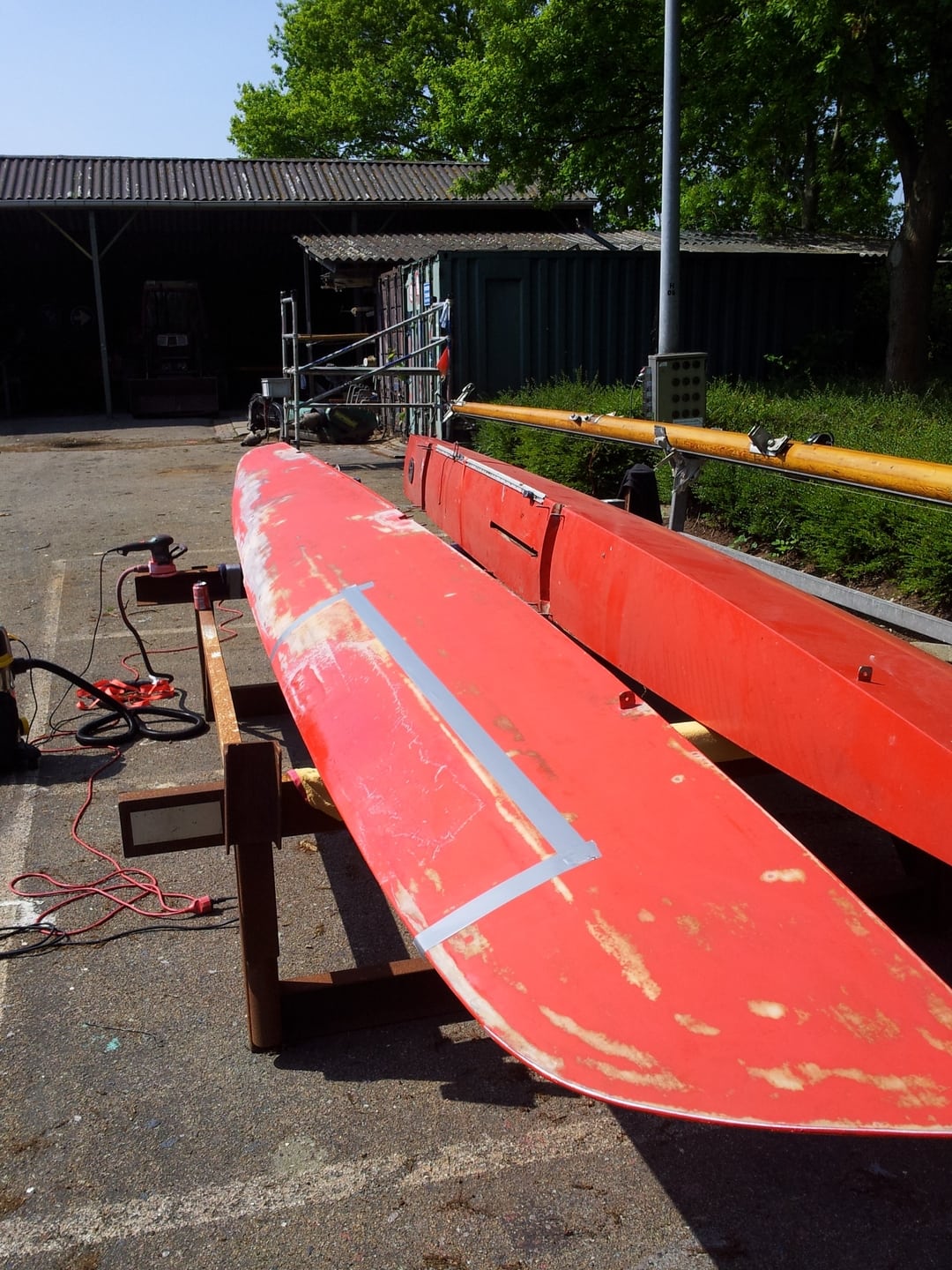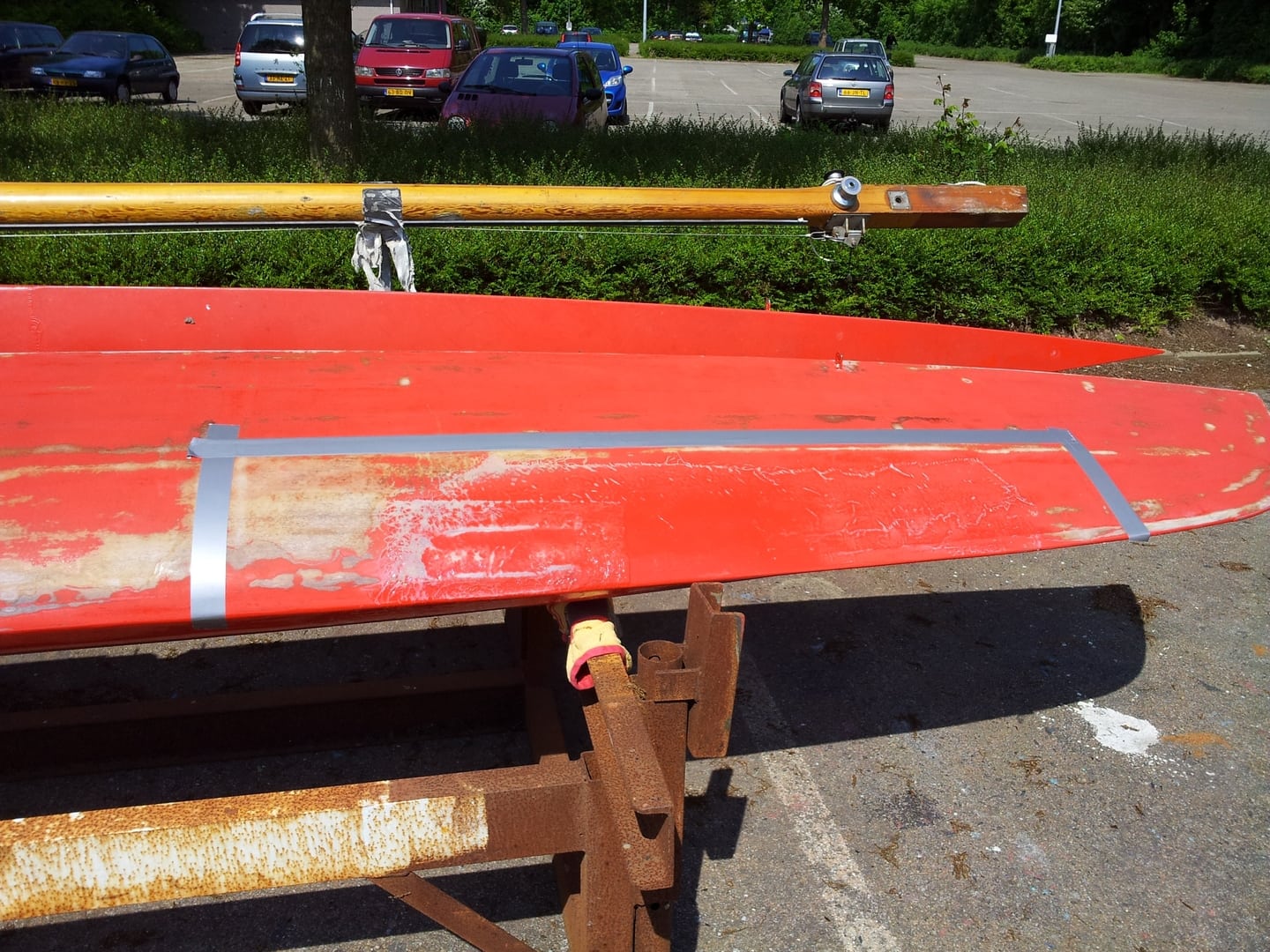So, started to work on the wooden Tornado at last.
Thought to do the damaged hull first, and here's what
I found; the polyester/glass repair on the hull is soft,
you can push it inwards 2/3 of an inch. Scraped away
some of the polyester to find there's no wood behind it.
Kept on sanding to see the lines of 2 bulkheads and a
stringer appear. Taped them to make a clear picture.

The soft spot is below the stringer, between the 2 bulkheads.
First idea is to carefully remove the whole hull-part marked with
the tape. Then replace it with new ply and glass.

My fear is the height of the repair, is it heigh enough to bend the
ply into shape?
So, the second idea is to take out the ply from the deckrail all the
way down to the keel-beam (?) and bend a new section of ply over
the bulkheads and stringer. and then glass it of course.
What are you're thoughts? Has anyone done a repair like this?
Any input is welcome.
And NO, I'm not gonna let go that hull into the scrapyard, it
is one of the last wooden T's in the region and the previous owner
told me it was at the olympics in the 70's, so it has a history.
Regards, André
--
Tornado (80's Reg White)
Prindle 18-2 (sold)
Dart 16 (hired and hooked)
13 mtr steel cutter (sold)
Etap 22, unsinkable sailing pocket cruiser.
Amsterdam, the Netherlands
--



